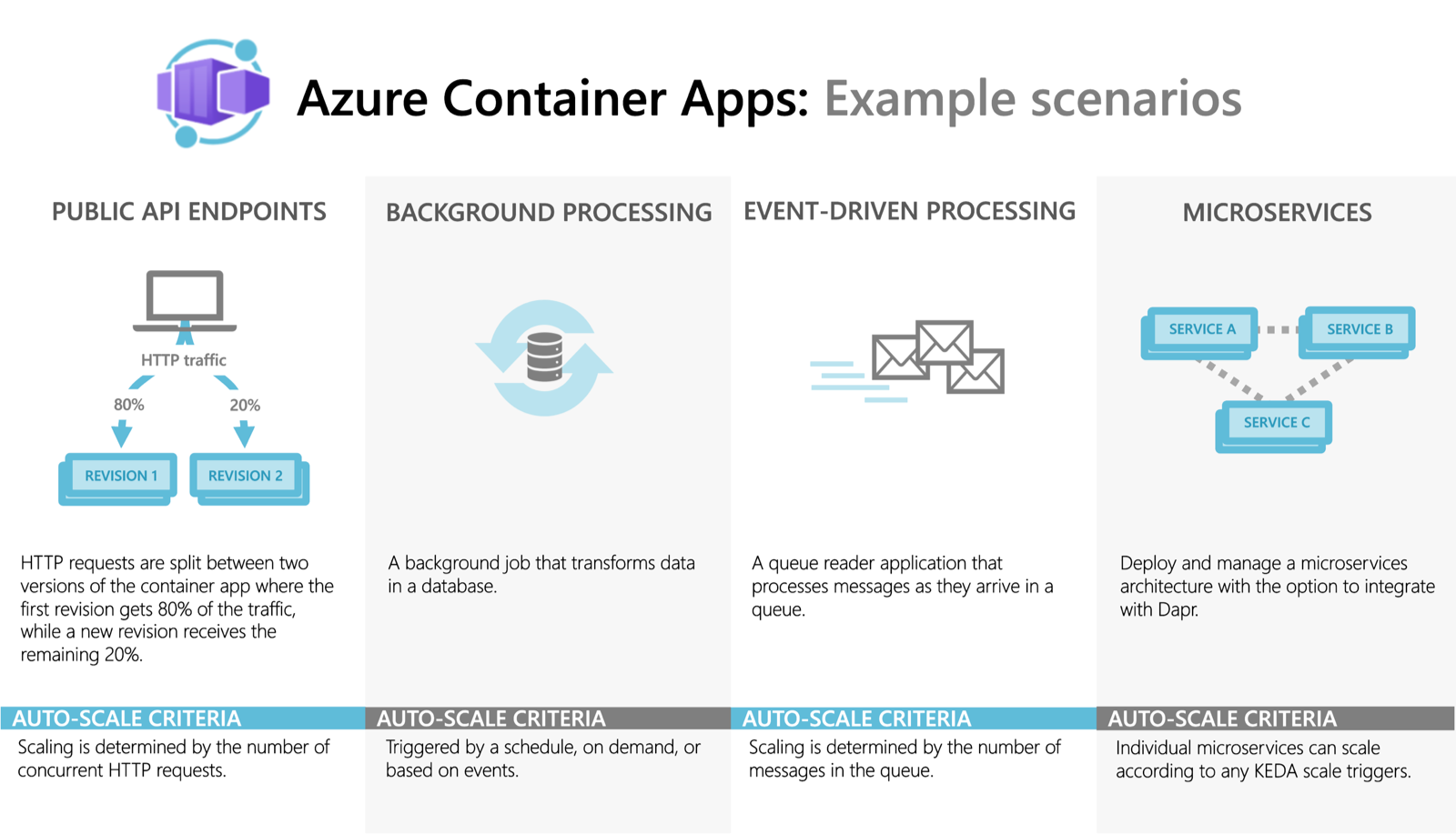Last year at Ignite, Microsoft announced a cloud-native offering with Azure Container Apps, allowing developers to build microservice architectures using containers in preview. The company now announced the general availability of the service at the yearly Build conference.
Azure Container Apps is built upon the foundation consisting of open-source technology with CNCF projects like Kubernetes Event-Driven Autoscaling (KEDA), Distributed Application Runtime (Dapr), and Envoy running on the Azure Kubernetes Service (AKS).
Daria Grigoriu, a principal PM manager at Microsoft, stated in a Tech community blog post on the GA release of Azure Container Services:
Thanks to this open-source-centric approach, teams can onboard their cloud-native apps quickly to Azure without the operational overhead of Kubernetes, all while preserving app portability.
The general release of Azure Container Apps now includes new features such as the ability for developers to secure their apps by deploying them to a virtual network using managed identities to access other Azure Active Directory (Azure AD) protected resources. In addition, they can configure integrated Authentication and Authorization for their external ingress-enabled apps. Furthermore, custom domains and certificates can be used to customize apps. Heartbeat, readiness, and health probes are all available. Also, real-time log streaming for stdout and stderr log messages, connecting to container consoles, examining metrics, and setting alerts may all be used to monitor the health and performance of apps.
Azure Container Apps can be used in various contexts, from public API endpoints to microservices. The service allows the execution of application code wrapped in any container, regardless of runtime or programming model. Furthermore, the code can be developed in Visual Studio and Visual Studio Code – and the Azure portal and Azure CLI to manage the Azure Container Apps resources.

Source: https://docs.microsoft.com/en-us/azure/container-apps/overview
The GA release led to several tweets, including one from Tom Petrocelli, a retired technology professional and executive, tweeting:
I know the speakers at #Microsoft #Build have to act like every announcement is earth-shattering. It just gets silly when announcing the GA of #Azure Container Apps given that AWS and others have had serverless for years. So, great but not astounding.
In response, Jeff Hollan, director of product at Microsoft and Azure Container Apps and KEDA co-creator, tweeted:
Azure has had serverless for years as well (e.g., Azure Functions, App Services). Container Apps is serverless container microservices powered by Kubernetes. Literally, nothing on AWS to match this. Maybe ECS? But doesn't have autoscale/scale to zero / powered by Kubernetes.
Lastly, more details of Azure Container Services are available on the documentation landing page. The service is billed based on per-second resource allocation and requests - with the first 180,000 vCPU-seconds, 360,000 GiB-seconds, and 2 million requests free of charge every month. The details of pricing can be found on the pricing page.